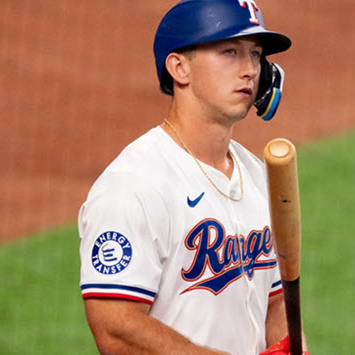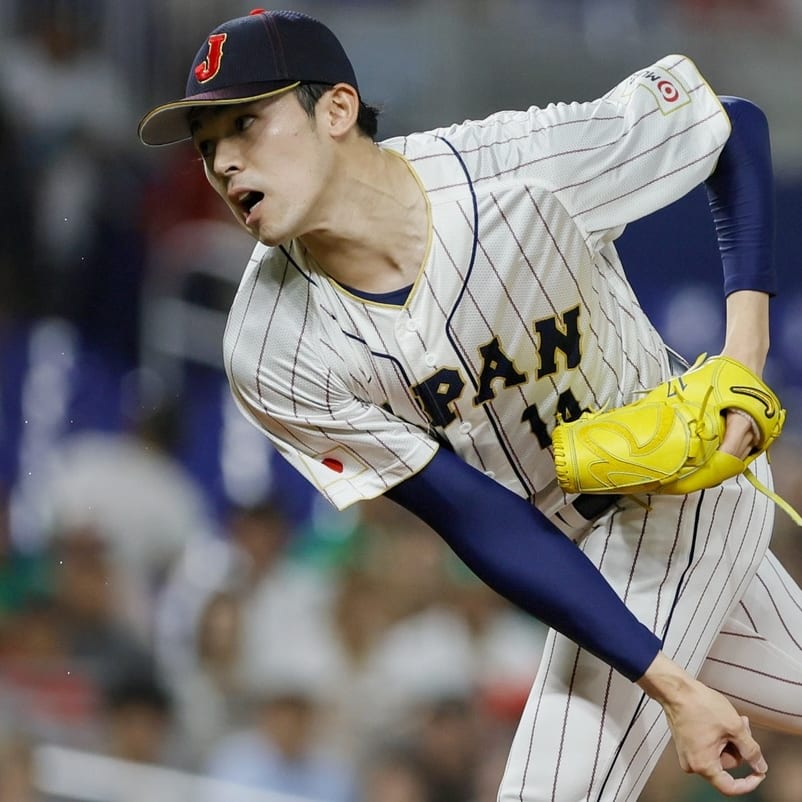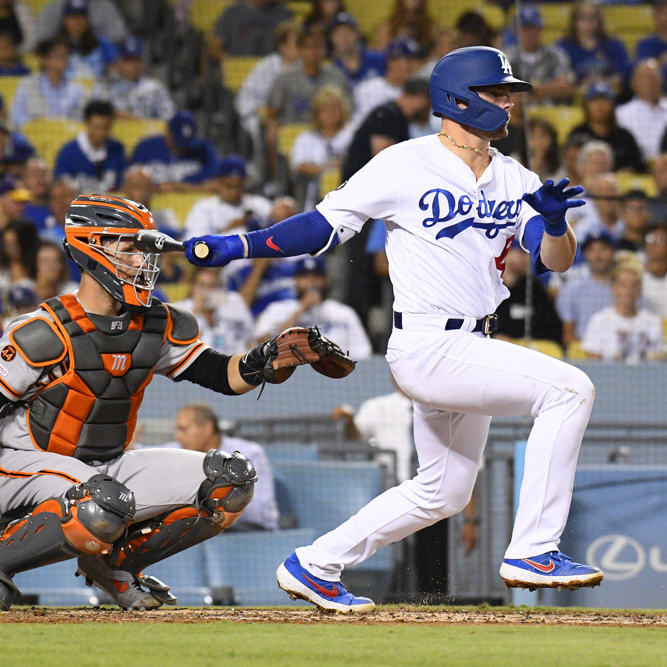Before we start, two things:
- You clicked on this article expecting it to be by a salty Braves or Dodgers fan, but it's actually written by a Phillies fan. One who thinks that…
- The current playoff format places more importance on the regular season than any postseason setup since 1993, the year I was born.
With six teams in each league making the playoffs, the truly elite teams are rewarded with a bye, which by itself makes them twice as likely to win the World Series compared to the merely good teams which have to fight it out in the Wild Card Round. Compare the win totals of the eight bye-winners from the two seasons we've had with this format to the win totals of the 16 teams who were punished by having to play an extra series:
| Type of Playoff Team | Average Regular-Season Record | Fair World Series Odds, Ignoring Team Quality |
|---|---|---|
| Bye-winner | 102-60 | 12.5% (+700) |
| Third-best Division-winner or Wild Card | 90-72 | 6.25% (+1500) |
The fact that being the sort of team that wins over 100 games now brings a tangible reward compared to being the sort of team that wins around 90 benefits players, and it also benefits people who like Truth and Justice. Players should be happy about it because it provides an incentive in free agency for teams to chase not just 90 wins but 102. Fans of fairness should be happy because it's nice to see that success over 162 games means something once baseball suddenly becomes boiled down to a five-game stretch.
But there's the catch: it doesn't have to be boiled down into a five-game stretch in the first place?
Maybe you've seen the math that shows that for an MLB team to win a series as often as favored teams in the NBA win their first-round matchups, they'd have to play a best-of-75. While I'd enjoy simulating a league with that setup in Out of the Park Baseball, that's not what we're talking about here. Instead, why not take inspiration from…
- the ALCS
- the NLCS
- the World Series
- every round of the Stanley Cup Playoffs
- every round except the play-in in the NBA Playoffs
and just play a best-of-seven in the Division Series.
It's a small tweak, but it gives a noticeable edge to teams who can claim to be meaningfully better than their opponents heading into the series. That's what we're looking for, aren't we? Something that rewards teams who are Actually Good, compared to whatever Braves and Dodgers fans think the Phillies and Diamondbacks are. Not only is it fair, it inspires owners to spend more to reach the league's inner circle, which benefits the players.
As for the owners, there's money in this for them as well. Playoff games generate big revenue and tons of attention, vastly outweighing the attention paid to regular-season contests. More playoff games means more money generated through multiple channels, including TV contracts, gate receipts, concessions, and extra value to negotiate into numerous sponsorship deals.
While additional money for the owners is all well and good, you might be doubting that the jump from best-of-five to best-of-seven has any real importance in terms of the almighty Fairness and Justice argument. Luckily, I've invented something called Mathematics to help us out.
If the two teams are genuinely evenly matched — or are perhaps forced to decide each game via coin-flip instead of baseball, for whatever reason — the length of the series wouldn't matter. The odds of each game, and therefore the series, would be 50/50, and gamblers would want +100 for either team.
If one team is favored by any amount, however, the amount by which they're favored increases proportionally with the length of a given series. The relationship between a team's chances of winning a given game and their chances of winning a series of a given length is shown on the table below:
Favorite's chances in one game | Favorite's odds in best-of-three | Favorite's odds in best-of-five | Favorite's odds in best-of-seven | Favorite's odds in best-of-nine | Favorite's odds in best-of-11 |
|---|---|---|---|---|---|
50% | 50% | 50% | 50% | 50% | 50% |
52% | 53% | 54% | 54% | 55% | 55% |
54% | 56% | 57% | 59% | 60% | 61% |
56% | 59% | 61% | 63% | 64% | 66% |
58% | 62% | 65% | 67% | 69% | 71% |
60% | 65% | 68% | 71% | 73% | 75% |
65% | 72% | 76% | 80% | 83% | 85% |
70% | 78% | 84% | 87% | 90% | 92% |
75% | 84% | 90% | 93% | 95% | 97% |
80% | 90% | 94% | 97% | 98% | 99% |
If you prefer to think in terms of odds, try this table instead:
Favorite's chances in one game | Favorite's odds in best-of-three | Favorite's odds in best-of-five | Favorite's odds in best-of-seven | Favorite's odds in best-of-nine | Favorite's odds in best-of-11 |
|---|---|---|---|---|---|
-100 | -100 | -100 | -100 | -100 | -100 |
-108 | -113 | -116 | -119 | -122 | -124 |
-117 | -127 | -135 | -142 | -149 | -155 |
-127 | -144 | -157 | -170 | -182 | -193 |
-138 | -162 | -184 | -204 | -223 | -242 |
-150 | -184 | -215 | -245 | -275 | -306 |
-186 | -255 | -325 | -400 | -482 | -573 |
-233 | -363 | -513 | -693 | -912 | -1,178 |
-300 | -540 | -866 | -1,317 | -1,944 | -2,813 |
-400 | -862 | -1,627 | -2,899 | -5,007 | -8,481 |
As you can see, moving to a best-of-seven doesn't change the odds by more than a few percentage points, but we really shouldn't be looking for anything drastic here. We already have quite a good system, but we're just trying to be a bit fairer to the league's best teams.
Based on the actual odds from DraftKings Sportsbook from before the Division Series began, we can estimate what the odds would have been for the four favorites had they gotten to demonstrate their supposed superiority over seven games:
| Favored Team | Actual Best-of-Five Odds | Estimated Best-of-Seven Odds |
|---|---|---|
| Orioles | -115 | -118 |
| Astros | -160 | -174 |
| Braves | -170 | -186 |
| Dodgers | -205 | -230 |
Expanding the Division Series from a best-of-five to a best-of-seven is the cleanest way to improve the MLB playoffs without screwing up the good parts of the current system. A good playoff format needs to balance three things:
- Preserve the importance of the regular season
- Provide the opportunity for upsets
- Not be too long
Achieving goal #1 is actually quite straightforward, if it's your only goal: just scrap the playoffs entirely, like they do in most European soccer leagues. The best team in the regular season always wins the league, because the regular season is all there is. But that of course takes goal #2 entirely off the table and isn't something MLB would seriously consider, nor something fans would want.
We could go the other way and achieve goal #1 by extending each series to some ridiculous number like 23 games, as the math clearly shows that the better team's advantage becomes stronger over a longer series. That helps the league's best teams while leaving goal #2 still theoretically possible. But pretty quickly, we'd fall afoul of goal #3.
If change has to come, then, let it be a change which goes marginally further in enhancing the importance of building a dominant team over the course of 162 games. Keep the 12-team system we have now, which incentivizes teams to chase excellence and the first-round bye which comes with it, but give the league's best teams two more games to pull out of a temporary funk and demonstrate their quality. It's a small but meaningful change, one which benefits everybody.
Whether this year's Dodgers or Braves really would have climbed out of a 3-0 or 3-1 deficit is of course another question entirely, but in the worst-case scenario, who would have minded getting to see those two exciting NLDS matchups for one or two more games?
Not the players, who want owners to invest in true, top-tier teams rather than settling for 84-win mediocrity.
Not the owners, who would never say no to some additional playoff TV money.
And certainly not the fans, who would get extra playoff baseball to watch while enjoying the added sense of fairness that a seven-game series would give us.












